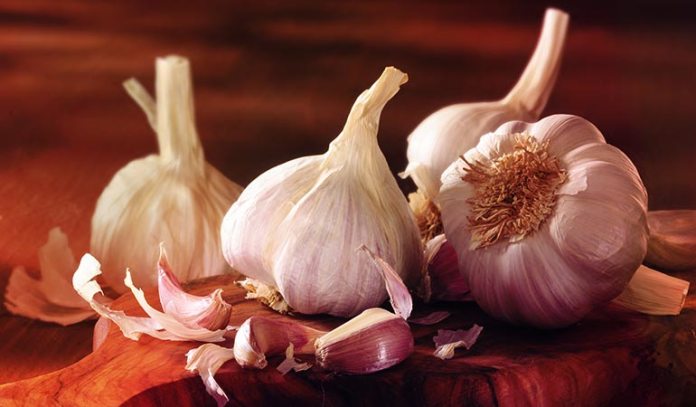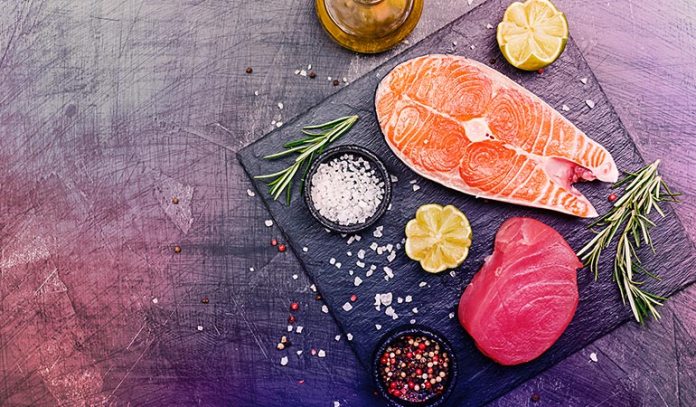Your body has the capacity to lighten or thicken your blood and it regulates the thickness of your blood based on certain situations, like when responding to an injury. Thickening is not always bad as it helps your blood to form clots that prevent severe bleeding after injury, but abnormal blood thickness can cause spontaneous clot formation, causing a heart attack or stroke.
This condition is known as hypercoagulability. It occurs when your blood is thicker and sticker than normal and is due to an abnormality in the blood clotting process. When your blood is too thick, it affects the circulation of oxygen, nutrients, and hormones in the blood and can cause nutritional deficiencies as well as low levels of oxygen or a condition known as hypoxia. While most doctors prescribe blood thinning medications, you can also benefit from natural foods that can help lighten thick blood.
Foods To Eat
1. Ginger

According to the University of Maryland Medical Center, preliminary studies show that ginger may help prevent blood from clotting. Though the results are promising, researchers say that it is too early to make firm recommendations to heart patients, but these effects may help protect against blood vessel blockage that can lead to heart attack and stroke.
2. Garlic

In addition to decreasing bad cholesterol and increasing good cholesterol, garlic helps prevent platelet aggregation, also known as blood clotting. According to the University of Maryland Medical Center, allicin appears to be the chemical property in garlic with the anticoagulant powers.
3. Vitamin E

The Office of Dietary Supplements states that vitamin E has been shown to prevent or delay the onset of coronary heart disease by preventing the formation of blood clots. Food sources of vitamin E include almonds, wheat germ, sunflower seeds, peanuts, safflower oil, spinach, and mangoes. So make sure to include them in your diet if you want to lighten your blood.
4. Fish Oil

Fish like salmon, tuna, and halibut contain an essential fatty acid called omega 3 fatty acid which offers many benefits for your heart. The American Heart Association recommends eating fish twice a week for heart health. In addition to lowering triglyceride levels and blood pressure, omega 3 fatty acids in fish contain anticoagulant properties that slow down the development of blood clots to help prevent and treat atherosclerosis.
Foods to Avoid
If you are trying to thin your blood, it is important to avoid foods that contain vitamin K. Vitamin K is necessary for the body to form clots and it is used to thicken the blood. Vitamin K can be found in many different foods and you need to be careful about eating these foods.
1. Leafy Green Vegetables

While greens are known to be nutritious, they’re also rich in vitamin K. Green veggies like arugula, collards, kale, mustard greens, parsley, spinach, Swiss chard, turnip greens and wheat grass need to be consumed in limited quantities. The daily recommended intake of vitamin K is 80 mcgs and many of these foods contain far more than that in a single serving.
2. Cruciferous Vegetables

Cruciferous vegetables are those from the Cruciferae or Brassicaceae family and they too are high in vitamin K. Avoid cabbage, cauliflower, broccoli, turnips, rutabaga, Brussels sprouts, radish, horseradish, and wasabi.
3. Beans And Lentils

You may also have to avoid chickpeas (garbanzo beans) and lentils if you are taking anticoagulant medications. This would also include foods made with chickpeas such as hummus or falafel.
4. Liver

Liver is high in vitamin K. If you have thick blood or are taking anticoagulants, talk with your doctor before eating beef, pork or chicken liver, or products containing liver such as pate.
If you have hypercoagulability, you can have foods with natural anticoagulation and blood thinning properties and may able to thin your blood without the need for medication. But this decision has to be taken in consultation with your doctor and regular tests need to done to monitor your clotting properties.





